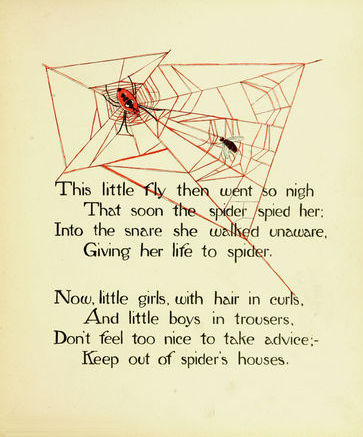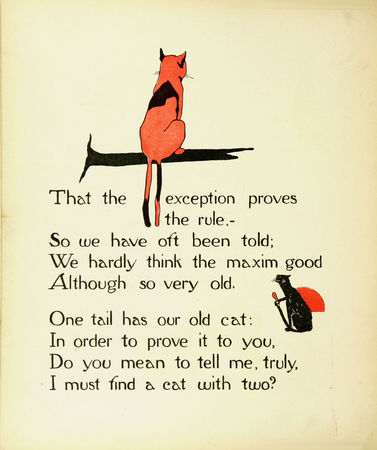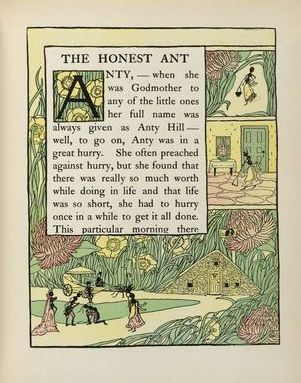Ordinary kids’ bicycles, as opposed to the motorized kind, haven’t gotten much attention in the CPSIA outcry. But they’re in trouble too. More: see April 6 update, including an informative CPSC submission (PDF) by Mayer Brown for the Bicycle Product Suppliers Association; and an upcoming meeting of the alarmed industry.
Posts Tagged ‘CPSIA’
CPSIA chronicles, March 27

Short takes for the weekend:
- U.S. Rep. Jeff Fortenberry (R-Neb.) has introduced H.R. 1692, a bill to exempt ordinary books from the law’s lead limits; the American Library Association immediately endorsed the bill [ALA District Dispatch]
- Lead poisoning, the Law of Diminishing Returns, and the fanaticism of “zero” as a goal [Fenris Lorsrai] “Dangerous until proven safe” [Coyote Blog]
- The very popular style site Dooce gives the law a mention in a review of a handmade hippo wood teether;
- From Ed Driscoll/Pajamas Media, a new Silicon Graffiti video: “2009: A Book Banning Odyssey”. We get kindly mentioned.
- His company can comply with CPSIA and carry on as before. So why is he so upset? [Rick Woldenberg] And Darleen Click picks up on Woldenberg’s parody post-CPSIA toy “catalog” [Protein Wisdom]
- “It wouldn’t be fair ’cause everybody wants to ride”: Kids themselves, mostly ages 7-9, comment on the minibike ban [Valley News] Some thoughts on why much of the media began to “get” the off-highway-vehicle (OHV) ban before it started to realize the law’s implications for books, apparel, toys and so forth [Wacky Hermit]
- Could Canada be preparing to repeat some of the errors of CPSIA in its own law? Is someone alerting the folks in Ottawa to try to make sure that doesn’t happen? [ecoDomestica; Product-safety bill C-6 #CCPSA, successor to Bill C-52; Tim Holtorf, Tim & Zodi’s and followup]
- Just made my travel reservations for Washington, D.C. April 1; I’ll be observing the CPSIA rally on Capitol Hill. And you?
CPSIA: handing the GOP an issue?
 According to one of Rick Woldenberg’s sources, the leadership on Capitol Hill ordered a Democratic member “in no uncertain terms” not to address next Wednesday’s rally calling for legislative reform of the Consumer Product Safety Improvement Act of 2008. The bill was rushed to passage this year with overwhelming support from both parties; the public outcry in recent months has stirred proposals mostly but not entirely from Republicans for legislative relief.
According to one of Rick Woldenberg’s sources, the leadership on Capitol Hill ordered a Democratic member “in no uncertain terms” not to address next Wednesday’s rally calling for legislative reform of the Consumer Product Safety Improvement Act of 2008. The bill was rushed to passage this year with overwhelming support from both parties; the public outcry in recent months has stirred proposals mostly but not entirely from Republicans for legislative relief.
You’d think the Democrats would be smart enough to want to be perceived as listening to public outrage on this issue rather than letting the Republicans develop it as a source of partisan advantage. But apparently you’d be wrong.
P.S. Deputy Headmistress now has up a very interesting post on the partisanship/non-partisanship angle. The movement to protest and reform or repeal CPSIA, as she notes, is truly diverse ideologically, politically, and in almost every other way: it brings together persons of astoundingly disparate views and manners of living. On the other hand — as she demonstrates by citing particulars of the news coverage a year or two back — the maneuvering that got CPSIA passed in the first place was remarkable for its jealous partisanship, something easily overlooked in retrospect given the near-unanimous eventual vote in favor of the law.
Public domain image: Yankee Mother Goose (1902), illustrator Ella S. Brison, courtesy ChildrensLibrary.org.
CPSIA: one for the books
As Charles Henry and Carter Wood observe, Tuesday’s Washington Post article on the fate of vintage books is another sign that the CPSIA debacle is gradually edging into the attention zone of even the more highly placed members of the press.  Florida’s St. Petersburg Times also covered the book/library angle over the weekend, following earlier coverage by the Associated Press Mar. 17, and before that by the Fort Worth Star-Telegram, the Guardian (U.K.), Cincinnati Enquirer and elsewhere. (Other aspects of the law, similarly, have won sporadic rather than sustained attention at individual large papers, and none have yet broken through to the print columns of The Deaf Lady and thereby reached those who rely on her for their news agenda.)
Florida’s St. Petersburg Times also covered the book/library angle over the weekend, following earlier coverage by the Associated Press Mar. 17, and before that by the Fort Worth Star-Telegram, the Guardian (U.K.), Cincinnati Enquirer and elsewhere. (Other aspects of the law, similarly, have won sporadic rather than sustained attention at individual large papers, and none have yet broken through to the print columns of The Deaf Lady and thereby reached those who rely on her for their news agenda.)
If nothing else, the Washington Post story should lay to rest the still sometimes heard notion that no one is talking about banning many of these books or that everyone somehow favors broadly exempting vintage books, with the only real question being how to get there. Reporter Michael Birnbaum interviewed Columbia public health specialist David Rosner, known as a high-profile lead hawk and critic of any toleration of nonzero exposure risks (and also a recurring expert witness for plaintiff’s lawyers in lead litigation, in which role he puts in a cameo in this fine 2007 Joe Nocera column in, of all places, the NYT). Rosner quite unmistakably does not want older books exempted as a general matter and does want government to intervene against those that have detectable, even if infinitesimal, levels of lead in their ink. He dismisses as ignorant — unacquainted with “the latest science” — parents and booksellers who object that they grew up with these books, they turned out okay, etc. (In fact, “latest science” or no, scientists have by no means joined in the consensus Rosner aims to suggest; hence the remarks from Centers for Disease Control spokesman Jay Dempsey the other day that “On a scale of one to 10, this is like a 0.5 level of concern“).
Birnbaum also interviews a second high-profile lead hawk, Johns Hopkins public health professor and longtime regulatory activist Ellen Silbergeld, who takes a somewhat contrasting view more akin to CDC’s (dismissing the book issue as “very clearly not a high priority” in protecting children). But that’s not all: Silbergeld appears to associate herself with (otherwise unnamed) critics who “accuse the safety commission of trying to undermine the law by stirring up popular backlash”, calling the agency’s continued inability to resolve the issue “absurd” and “disingenuous”. The suggestion here, it would seem, is that the CPSC is purposefully sabotaging the law by accommodating, even in part and inconsistently, the views of one of its own two commissioners, Thomas Moore, who famously called for some share of older books to be “sequestered” — not to mention outsiders like Rosner whose views appear to follow similar lines. So now we’re apparently meant to go on a hunt for imagined wreckers and saboteurs at the agency, presumably including its key career staff.
Meanwhile, and fortunately, discussion continues among persons who care passionately about old books for their own sake and don’t want to see them lost. Well-known author Neil Gaiman remarked on the story on Twitter (“So wrong, so wrong, so utterly, utterly wrong“) which was passed along (“retweeted”) by hundreds of his readers and fans; many blog posts and discussions resulted. David Niall Wilson (“Glimpses Into an Overactive Mind”) contributed two passionate posts (“This idiocy has to be stopped”.)  The popular James Lileks, whose eponymous site is one of the most consistently diverting in American journalism, did a short column for the Minneapolis Star-Tribune, and the subject erupted in comments at Boing Boing. Some other discussions, all worth reading: Tim & Zodi (via Deputy Headmistress), Michael Lieberman at Book Patrol (also Wessel & Lieberman), Jennifer at Series Books for Girls (“this lead thing has not gone away. Don’t think for a minute that it has”), Vivian Zabel, Le Mars, Iowa, Daily Sentinel, Aria Nadii/Wild Muse Notes.
The popular James Lileks, whose eponymous site is one of the most consistently diverting in American journalism, did a short column for the Minneapolis Star-Tribune, and the subject erupted in comments at Boing Boing. Some other discussions, all worth reading: Tim & Zodi (via Deputy Headmistress), Michael Lieberman at Book Patrol (also Wessel & Lieberman), Jennifer at Series Books for Girls (“this lead thing has not gone away. Don’t think for a minute that it has”), Vivian Zabel, Le Mars, Iowa, Daily Sentinel, Aria Nadii/Wild Muse Notes.
And don’t forget the rally next Wednesday morning, April 1, in Washington, and covered by, among other places, Apparel News. Registration can be accomplished here. And Lahle Wolfe at About.com Women in Business Blog offers six (other) ways to protest the law.
Public domain images: Yankee Mother Goose (1902), illustrator Ella S. Brison, courtesy ChildrensLibrary.org.
CPSIA: coming attractions
Preoccupied with unrelated deadlines, I’ve skipped over a number of interesting stories and developments on CPSIA that deserve in-depth discussion. Each of the following really deserves its own full-length post, and if my schedule permits in the coming days and weeks, I’ll try to do each one justice.

- In response to Michigan Democratic Rep. John Dingell’s request for information about problems in implementing the law, CPSC Acting Chairwoman Nancy Nord had a smart response: she let the commission’s top career staff draft the letter answering the Congressman. The result is a 21-page memo (PDF; w/three-page cover letter) that provides a devastating and thoroughly documented account of why the law was destined from its day of passage to have catastrophic consequences for producers and retailers. In Washington, the career staff of an agency is often listened to in a way that an appointee of an outgoing administration is not. With much detail not formerly available and careful documentation of the way the law’s drafters tied the agency’s hands to prevent the very same reasonable exemption-making that many proponents of the law now claim to favor, the document deserves much more extended analysis than I can give it here and now; it should be read by anyone interested in the case for CPSIA reform.
- CPSIA’s threat to vintage books is the subject of a story in yesterday’s Washington Post, and was covered by Publisher’s Weekly last week (as well as at many blogs). Both pieces can usefully be read in conjunction with the detailed discussion of the vintage book issue toward the end of the CPSC staff/Nord/Dingell letter, above, which sheds light on questions raised in both articles.
- Deputy Headmistress has been looking into the question of how it was that European countries had earlier adopted regulations on the same subject and yet experienced far less trauma to small producers, sellers and consumers. She takes up the topic in posts here, here, and here. Not to spoil the suspense, but it has a lot to do with Europe’s willingness to 1) phase in regulations over a period of years; 2) prescribe testing and certification protocols as if they actually cared about sparing producers pointless cost and hassle; 3) target regulations at the particular market segments (e.g., items used by the youngest kids) most likely to present an actual risk of ingestion. In each instance, the U.S. Congress chose differently.
My to-be-blogged file also contains whole stacks of stuff on who on Capitol Hill appears to have a clue on this issue and who doesn’t, on the often wrongly guesstimated costs of testing, and yet more on vintage books, among many other topics. And don’t forget the rally coming up next Wednesday in D.C.
“Possible Solutions To Improve the CPSIA”
The Handmade Toy Alliance tries to take a moderate and reasonable approach toward reforming a law that is itself neither moderate nor reasonable. Its recommendations:
- 1. Component-based testing…
- 2. Exemptions from testing…
- 3. Harmonization with European Standards…
- 4. Exempt permanent batch labeling…
- 5. Revisit the retroactivity of the CPSIA…
CPSIA: the countable costs
In some ways the most distinctive costs of the Consumer Product Safety Improvement Act are the human-scale kind that are hard to measure — the handicrafters’ livelihoods blasted, the families unable to find sturdy winter clothes at the Goodwill, the kids who can’t get their dirtbikes serviced, the threats to vintage children’s books and to small-run items for special-needs kids.  But there are also a number of measurable, tangible economic costs that might capture lawmakers’ attention, and which affect larger, more sophisticated actors as well as the small producers, dealers and families that have found it so difficult to make their voice heard in Washington.
But there are also a number of measurable, tangible economic costs that might capture lawmakers’ attention, and which affect larger, more sophisticated actors as well as the small producers, dealers and families that have found it so difficult to make their voice heard in Washington.
- A survey by the Toy Industries of America says the law has already cost toy businesses more than $2 billion [Playthings, Toy News]. As readers will recall, the minibike/powersports industry projects that the ban on its youth products will cost $1 billion by year’s end. That’s $3 billion right there, representing only two of the many industries hit by the act; it doesn’t include (for example) apparel, resale (two apparel-making groups report $700 million in stranded inventory, costs to Goodwill and Salvation Army may exceed $270 million), books, school and party supplies, sporting goods, furniture, and so forth.
- The stock price of well-known kids’-apparel retailer Gymboree slid by 40 percent overnight early this month “on news that it took massive inventory write-offs in the most recent quarter and suffered sharp margin declines and sales losses, all as a result of the CPSIA”. At a conference call with investors, Gymboree chairman/CEO Matt McCauley noted that phthalates are found “in many screenprints”, which makes their ban an important issue for apparel. Remember the court’s last-minute ruling that the phthalates ban would have to be retroactive to existing inventory, even though the CPSC had given guidance to manufacturers that only post-Feb. 10 production would be affected? Attorney Aaron Colangelo of the Natural Resources Defense Council, who had litigated that case successfully, was quite dismissive about the difficulties of compliance at the time. Well, according to McCauley, that one decision rendered 1.7 million units of inventory at his chain unsalable. “As many of you know, we operate on a nine to 12-month product cycle,” he told the investors. But of course few on Capitol Hill seem to have thought it amiss for new rules to be imposed within a period of a few months, or, as with the court reversal, a few days.
-
Auction Bytes: “On March 14, 2009, Amazon.com will remove approximately 2,500 products from the Toys and Baby categories in order to comply with the Consumer Product Safety Improvement Act of 2008 (CPSIA). The company said it had not received certification of CPSIA compliance from the manufacturers of those products. Amazon will cancel all seller offers against the ASINs, and their detail pages will be removed from the site.” (company’s statement). For readers who are new to the subject, that does not imply that any of the 2,500 items pose any serious risk, nor does it imply that any particular item would fail to pass the new thresholds with flying colors.
 In many instances it indicates only that the makers have not gotten their ducks in a row to obtain GCCs, possibly because they’re unfamiliar with the process, or can’t afford the tests, or plan to get out of the business soon.
In many instances it indicates only that the makers have not gotten their ducks in a row to obtain GCCs, possibly because they’re unfamiliar with the process, or can’t afford the tests, or plan to get out of the business soon. - Note that as in the Amazon case, the much-publicized stay of CPSC enforcement for a year applying to most newly manufactured goods doesn’t in practice protect small makers from seeing their product lines squeezed out of major channels of commerce if they fail to launch a compliance program (no matter how unlikely it is that their knitted booties or wooden puzzles contain lead). To cover themselves from legal attack, deep-pocket retailers demand GCCs (general certificates of compliance). Last month, apparel-maker mentor Kathleen Fasanella wrote: “Most (okay, all) of the retailers I’ve spoken to, are still requiring GCCs [despite the stay]. Furthermore, they are enforcing the August standard of 300ppm.”
- Plum Privy has been compiling estimated costs of the law from news reports, with the tally already exceeding $4 billion. Persons in affected lines of work may want to check in at that site to offer additional information or refinements.
- Understatement of the year? Writing in Apparel mag, lawyers with Mintz Levin call the law “extremely burdensome and bewildering“.
CPSIA on the radio: WTIC “Morning Show with Ray Dunaway”
 I’m scheduled to be a guest on Ray Dunaway’s Morning Show (WTIC 1080 AM, Hartford) circa 7:20 a.m. to discuss CPSIA. For a quick introduction to the law, follow our links for the problems with thrift stores, motorbikes, libraries and books, kids’ garments, and general problems with the law.
I’m scheduled to be a guest on Ray Dunaway’s Morning Show (WTIC 1080 AM, Hartford) circa 7:20 a.m. to discuss CPSIA. For a quick introduction to the law, follow our links for the problems with thrift stores, motorbikes, libraries and books, kids’ garments, and general problems with the law.
P.S. WTIC, the news/talk Connecticut station, has been great on crediting Overlawyered over the years, and host Ray Dunaway said on the air that he gets a lot of story ideas for the show from this site. Thanks!
CPSIA: Congress has spoken. Now go!
A recent report from the Printing Industries of America (reprinted in this March 17 Keiger.com posting, via Deputy Headmistress) contains this distinctly ominous passage:
To date, Congressional majority leaders have stated they are not open to holding hearings nor opening the CPSIA for reconsideration, instead urging industry to pursue the exemption channels provided for in the CPSIA passed last year.

Now go! The great and powerful Oz has spoken!*
*For those disinclined to take orders, there’s always the planned April 1 protest. I’m thinking about making it down to D.C. to see how it goes.
CPSIA: Malcolm Smith’s protest

Early coverage of the Riverside, Calif. motorcycle great’s civil disobedience at Supercross (auto-plays 12-minute video), DirtRider and more, ATV Rider, Motorcycle.com, Cycle News, American Motorcycle Association. More: Covenant Zone.
